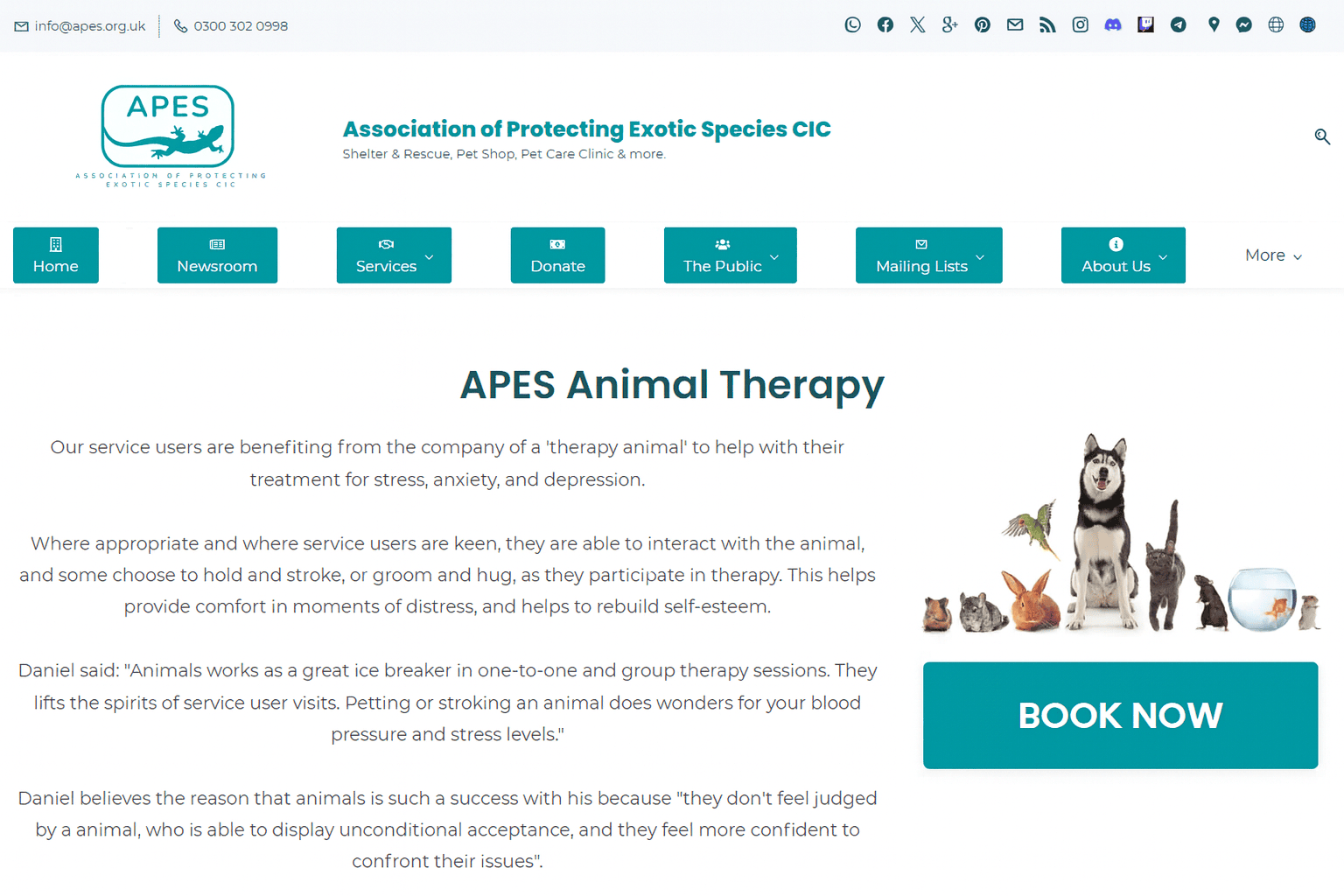APES Animal Therapy Program
Many of our service users benefit from the calming presence of a therapy animal as part of their support for stress, anxiety, and depression.
When service users feel comfortable, they are encouraged to interact with the animal—whether by holding, stroking, grooming, or simply enjoying a hug. These simple moments of connection can bring comfort during times of distress and help rebuild self-esteem.
Daniel, one of our staff members, explains:
“Animals are a great icebreaker in both one-to-one and group therapy sessions. They lift people’s spirits, and just petting or stroking an animal can do wonders for blood pressure and stress levels.”
He goes on to say:
“The reason animals make such an impact is because people don’t feel judged by them. Animals offer unconditional acceptance, which helps service users feel more confident in confronting their issues.”

Pet-assisted activities at APES create a safe and supportive environment where service users can open up—not only with their Mental Health Mentor but also with peers. The presence of an animal often makes conversations flow more naturally, helping to ease social barriers and encourage connection.
There’s also a powerful biological response at play. Interaction with animals can trigger the release of endorphins, which bring a sense of calm, while boosting serotonin, the chemical strongly linked to happiness and well-being.
By focusing attention on another living being, service users are gently guided away from their own struggles. This momentary shift allows space for self-reflection and opens the door to meaningful conversations about personal challenges and potential steps forward. In this way, pet-assisted therapy complements clinical goals, giving service users an engaging and non-judgmental pathway to healing.
The benefits of therapy animals are now widely recognised. Universities around the world invite them onto campus to ease students’ exam stress and first-term homesickness. Hospitals report that simply having an animal present helps patients feel more at ease in a clinical setting. Research supports this: studies show animal interaction can lower stress and anxiety, and a Dogs Trust survey revealed that 95% of dog owners feel happier after spending time with their pets, with 89% admitting they talk to their dog when no one else is around.
At APES, we harness this natural bond to create comfort, build confidence, and support progress in mental health recovery.







